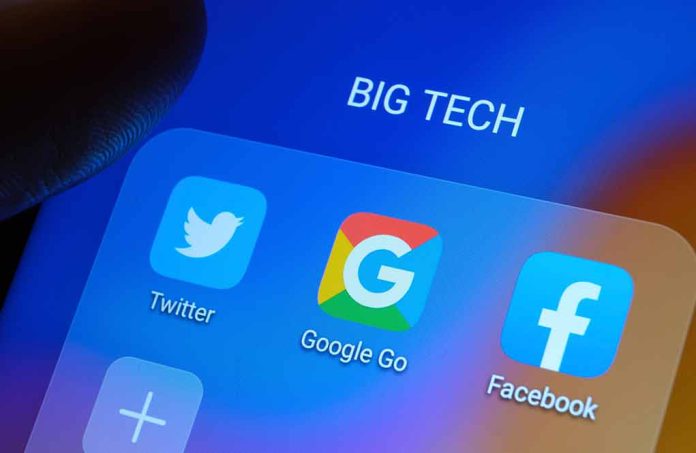
Trump’s latest policy move targets tech giants, aiming to reshape the landscape as pressures mount for increased regulation.
At a Glance
- The DOJ files antitrust actions to dismantle Google’s search monopoly.
- Gail Slater is nominated to lead the DOJ’s Antitrust Division.
- Bipartisan support exists for breaking up Big Tech companies.
- Potential economic disruptions and impacts on innovation are considered.
Trump’s Bold Antitrust Agenda
The U.S. Department of Justice has made a daring move to break up Google’s monopoly in the search engine market. This proposed judgment seeks to dismantle Google’s stronghold by forcing the company to divest critical assets such as its Chrome browser. If these measures fail to heighten competition, divestment of the Android platform may follow. Such aggressive actions suggest a serious attempt to realign the balance of power within the technology sector.
Google has opposed these plans, labeling them a “radical interventionist agenda.” This terminology underscores the significant tension between Silicon Valley and the political forces that aim to curtail its influence. As further actions target major tech companies, such as Amazon, Meta, and Apple, the scale of this antitrust movement could reshape the field of technology in the U.S. and beyond.
European Regulators Join the Fray
Following the lead of the United States, European competition authorities are also scrutinizing Big Tech’s operations. The potential remedies, such as compelling Google to divest its advertising technology business, hint at a global consensus on tightening the reins on these tech behemoths. If successful, these measures may spur market fragmentation, thereby opening doors for smaller businesses to innovate and compete.
A breakup of large tech corporations could present challenges, including possible disruptions to economic and equity markets and changes within job dynamics. However, proponents argue enhanced consumer choice and bolstered national security are worthy pursuits.
Leadership’s Strategic Shift
Donald Trump’s nomination of Gail Slater for Assistant Attorney General within the DOJ’s Antitrust Division marks a pivotal shift. With experience at the Federal Trade Commission and as an advisor to Vice President-elect J.D. Vance, Slater is poised to tackle high-profile antitrust battles. Her confirmation could realign the DOJ’s strategies and intensify the engagements against Big Tech’s monopolistic practices.
“Big Tech has run wild for years, stifling competition in our most innovative sector,” said Trump in a social media post.
The DOJ, in collaboration with the FTC, has numerous pending cases that touch on issues like censorship and monopolization. Vice President-elect Vance’s advocacy for existing gains against monopolization sets a tone of bipartisan resolve. Adam Kovacevich, an industry expert, posits that although there may be strategic shifts, the drop in cases is unlikely, reflecting a continued robust stance.
Industry Reactions and Future Implications
Google, amidst this intensified scrutiny, accused the administration of pursuing an agenda of interventionism. Despite the assertive governance, prominent industry figures, such as Jeff Bezos, extended congratulations to Trump on his political return, showcasing complex relationships within this power dynamic. Mike Davis of the Internet Accountability Project endorsed Slater’s candidacy, emphasizing fairness and competitive equity.
The passage of the Open App Markets Act, which constrains big players like Apple and Google, represents legislative support for continued antitrust efforts. As Trump attempts to introduce a new era of regulatory oversight, the economic consequences and the landscape of Big Tech will undoubtedly undergo scrutiny and possibly unprecedented change.












